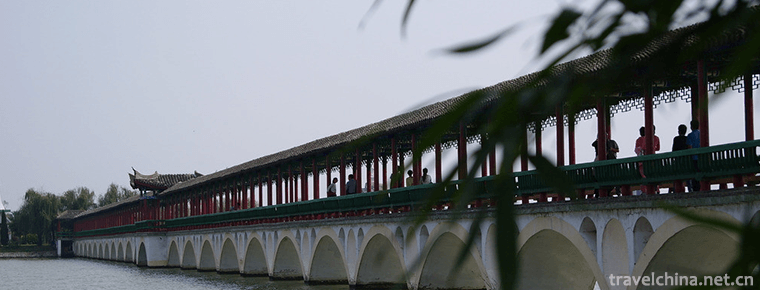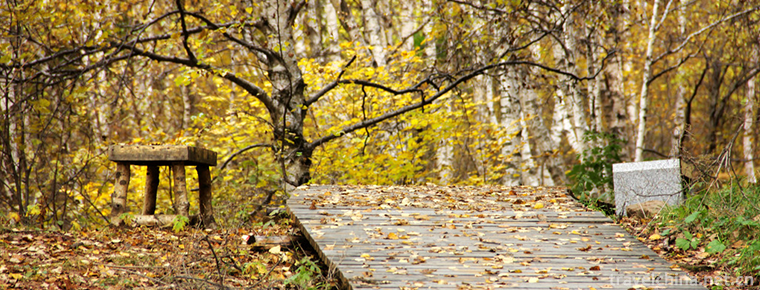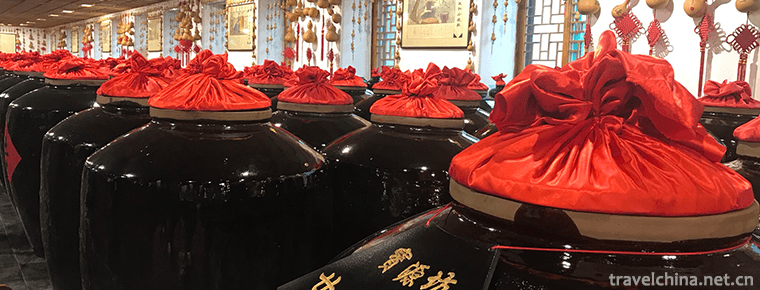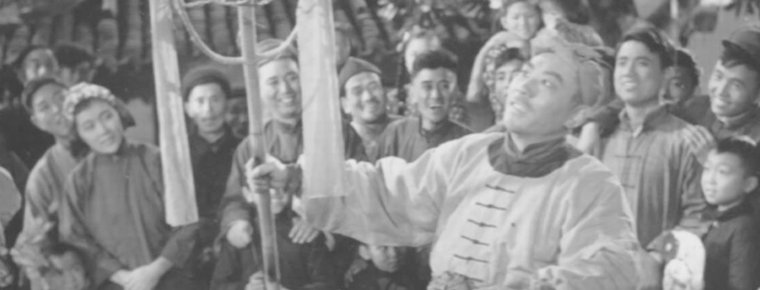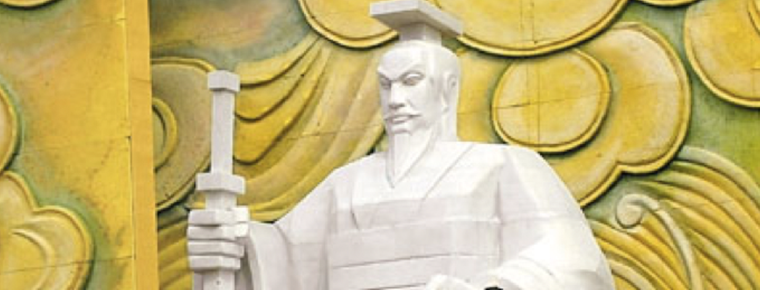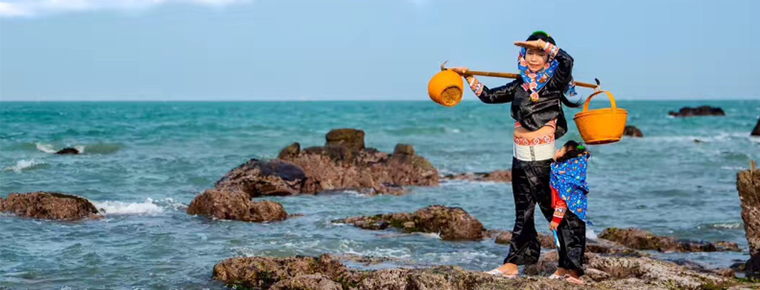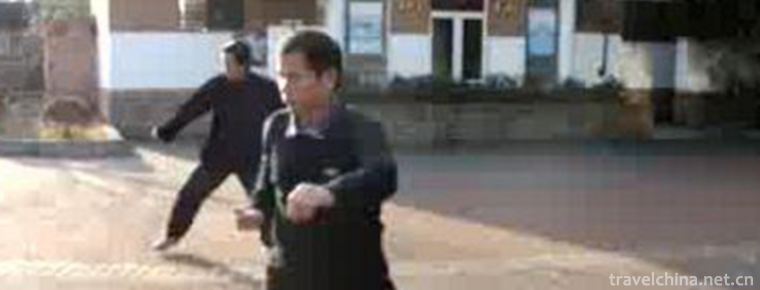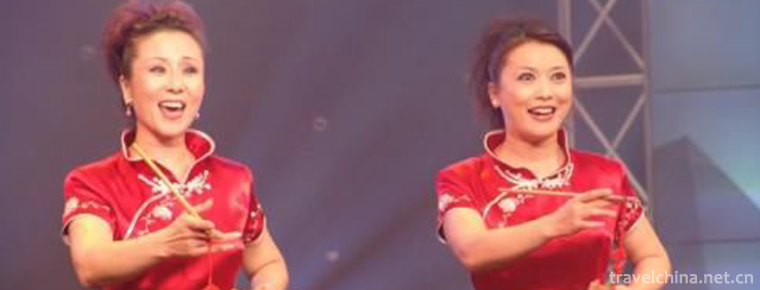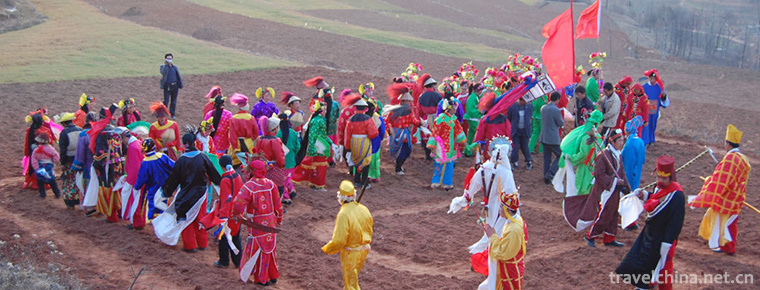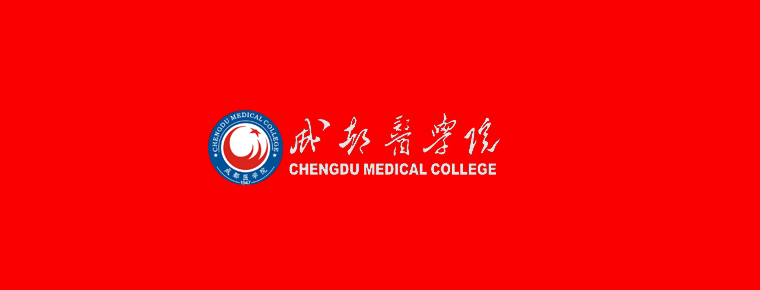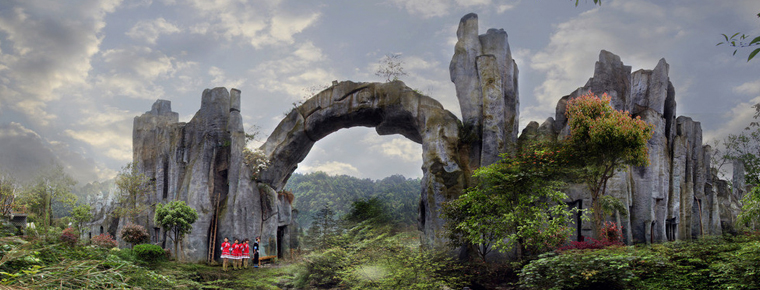Sichuan Opera
Sichuan Opera
Sichuan Opera, commonly known as Sichuan Opera, is mainly popular in the Han nationality areas of Sichuan, Chongqing, Yunnan and Guizhou provinces in southwestern China. It is a traditional opera which combines five kinds of tune arts: Gaoqiang, Kunqu Opera, Huqin (i.e. Pihuang), Tanzi Opera (i.e. Bangzi) and Sichuan Folk Lantern opera.
Sichuan Opera, one of the traditional Chinese operas, is popular in central and Eastern Sichuan, Chongqing and parts of Guizhou and Yunnan. Sichuan Opera Facebook is an important part of Sichuan Opera performing arts, and it is an artistic treasure created and inherited by Sichuan Opera artists of all dynasties. Sichuan Opera consists of Kun Opera, Gao Opera, Huqin Opera, Playing Opera and Lantern Tune. Sichuan Opera is divided into five acts: Xiaosheng, Xusheng, Dan, Huafa and Clown. Each act has its own system of skill procedures. Especially, Xiaodan's performance is the most distinctive one. It has many outstanding creations in theatrical expression techniques and performance techniques, which can fully reflect the aesthetic characteristics of Chinese opera, such as the combination of reality and fiction, and the freehand brushwork of relics. On May 20, 2006, Sichuan Opera was approved by the State Council to be included in the first batch of national intangible cultural heritage lists.
Orion of the Name
The name of Sichuan Opera began in the late Qing Dynasty and the early Republic of China. It was called Sichuan Opera at that time, and later it was collectively called Sichuan Opera. Although it was only over eighty years ago, as early as the Ming Dynasty, there were theatrical troupes performing in various parts of the province. Historians and artists of Sichuan Opera have talked about the origin and evolution of Sichuan Opera, as well as the "Zaju" in the late Tang Dynasty and the "Chuan Zaju" in the Southern Song Dynasty. There are even different opinions about the high tune of Sichuan Opera, which is earlier than the "Yiyang Tune" in Jiangxi Province and the "Qin Tune" in Sichuan Province sung by Changsheng of Shuling Wei in the Qing Dynasty. This shows that the history of Sichuan Opera is still an academic issue which has not been completely determined and needs further study and discussion.
Development history
Origin of Tang Dynasty
Sichuan Opera was once called "Sichuan Opera" in Tang Dynasty. According to some data, in the first year of Tang Xianzongyuan and 806 AD, a political event in Sichuan Province was very sad and ridiculous. At that time, Liu Bi was a corrupt official in Fangzhen (equivalent to the governor) of Shuzhong. He collected excessive taxes and taxes in Shuzhong without fear, which made people bored. Thus, the local elite (opera actors) compiled Liu Bi's works into a drama, that is, the famous Sichuan opera Liu Bi Bi Bi Bui in history, and prepared to speak for the people through this. But although the opera has been rehearsed skillfully, it has not been able to get the chance to perform.
It was not until Liu Bi rebelled against Tang Dynasty that the excellent people thought the time had come and began to perform in public. Who knows that the court was fatuous and thought that the play involved attacking the court, not only sent troops to smash the theatre, but also caught the actors and whipped them, and then filled the army. The actors'grievances were indignant and laid a deep foundation for the subsequent anti-Tang uprising.
This incident also reflects the important influence of Sichuan Opera from the side. History also records that the influence of Sichuan Opera in the Tang Dynasty was very great in China, and even the situation of "Shu Opera topping the world" appeared in the whole country. At that time, a famous Sichuan Opera Troupe composed of Gan Manchuan, Bai Jia, Ye Si, Zhang Mei and Zhang Ao also appeared in Sichuan Province, which was also the earliest one in the history of Chinese opera. At that time, famous Sichuan operas such as Liu Bibibi Bui, Mai Xiu Liangqi and Guankou Shen began to be popular all over the country.
In the Five Dynasties, there was a man who pushed Sichuan Opera to its peak in Chinese history. At the same time, he was also an emperor who made future generations laugh and laugh.
Li Cunsai unified the north in 923 AD and established the post-Tang regime, which was historically known as the post-Tang Zhuang Zong. He loved Sichuan opera very much, and his acting skills were excellent. He improved the skills of Sichuan Opera a lot. He became one of the two "grandfathers" of Sichuan opera. The old Sichuan Opera Troupe always worshipped the "grandfathers". Before entering the stage, the actors had to worship the portrait of "grandfathers" hanging at the entrance of the backstage to pray for success. There are two worshipped "grandfathers": one painted with white face and black sandwiches must wear a dragon gown; the other painted with white face without wearing a dragon gown - the former is Tang Ming Emperor Li Longji, who is well-known as "the first of the pear orchards"; and the latter is the emperor Li Cunxu of the late Tang Zhuang Zong.
Li Cunxie's life is rich and colorful because of opera, but his ending is regrettable. Not long after he became emperor, Li Cunsai was immersed in various operas such as Sichuan Opera. He even gave himself an artistic name "Li Tiantian", often appearing on stage with opera performers.
It is also because of this relationship that the status of opera troupes in the post-Tang Dynasty was unprecedentedly improved. They could not only enter and leave the court at any time, but eventually interfered with the government. So the whole post-Tang Dynasty became a stage for opera troupes and ministers became audiences. The consequences are self-evident: in March 926, the late Tang Dynasty general Li Siyuan launched a rebellion, and Li Cunsheng led a group of opera troupes to resist desperately in the chaos. He was shot in the face by a flowing arrow and pulled out an arrow to blow blood into the sky. Without medical knowledge, Li Cunxue drank a bowl of human milk at this time. When people touch milk in the case of excessive blood loss, they will promote blood circulation and accelerate death. Finally, Li Cunchao died, leaving only a tragic story of "the collapse of the country due to drama" spread throughout the world.
Successful in the Manchu and Qing Dynasties and prosperous in the Republic of China, it suddenly disappeared after the War of Resistance Against Japan.
Ming and Qing Dynasties
Sichuan Opera is popular in Sichuan Province and parts of Yunnan and Guizhou. Originally, Kun Opera, Gaoqiang Opera, Huqin Opera (Pihuang), Tanju Opera and Sichuan Folk Lantern Opera, which were introduced from other provinces, were performed separately in various parts of Sichuan. During the reign of Qianlong in Qing Dynasty (1736-1795), because these five kinds of tune art often performed together, they gradually formed a common style. At the end of Qing Dynasty, they were collectively called "Sichuan Opera" and later renamed "Sichuan Opera".
The origin of Sichuan Opera is not clear and there are many differences, but there is a consensus formed in the Qing Dynasty. Chongqing Sichuan Opera has been cultivated by Chongqing's broad temperament and has forged an inclusive mind.
In the late Ming and early Qing Dynasties, due to the immigration of various places to Sichuan and the successive establishment of various guildhalls, a variety of North-South operas were also spread throughout Sichuan, and in the long-term development and evolution, with the integration of Sichuan dialect, folk customs, folk music, dance, rap and song minors, gradually formed a voice art with Sichuan characteristics, thus promoting Sichuan area. The development of Sichuan Opera.
During the reign of Yongzheng and Qianlong in the Qing Dynasty, along with the flourishing of the "Flower Department", the choirs of Gaoqiang, Kunqu Opera, Huqin and Bangzi, which came from other provinces and were popular in various parts of Sichuan Province, gradually had the local characteristics of Sichuan in art in order to adapt to the people's appreciation habits and combine with the voice and customs of Sichuan. At the beginning of this century, with the development of industry and commerce, theatre troupes from all over Sichuan have been pouring into cities. In order to expand their influence, strengthen the cast, win more audiences, and gradually move towards a variety of business modes of performing with one voice. In this process, in order to improve the performing arts and enhance competitiveness, theatre performers have absorbed each other in art and learned from each other. The outstanding artists pay more attention to Gao Kunhu's unstoppable performance and the ability to sing, which provides conditions for the formation of Sichuan Opera's artistic style. The earliest use of the term Sichuan Opera (Sichuan Opera) was the famous class "Sanqing Festival" composed of Kang Zhilin and others under the influence of the 1911 Revolution.
Sichuan Opera is loved by the world and spread all over the world. The famous Sichuan Opera drama "Legend of White Snake. Jinshan Temple" has been widely spread at home and abroad.
Modern development
On November 28, 2018, the Sichuan Opera Program of Chongqing University and University of Electronic Science and Technology was selected as the first batch of excellent traditional Chinese cultural heritage bases in Colleges and universities across the country .
Genre Art
Sichuan Opera has gradually formed some schools because of the popular vocal areas and the relationship between artists and teachers. Among these schools, except the Xiangdan Xinghun (Huaxian) School, the ugly Xingfu (Sanqian) School and the Cao (Junchen) School, which are known as outstanding artists, they are mainly divided into four groups according to popular areas: one is the "West Sichuan School", including Wenjiang counties with Chengdu as the center, with Hu Qin as the main factor, forming a unique "Bei Diao"; the other is the "Ziyang River School", including Zigong and Neijiang District. County and city, mainly high-tune, the most rigorous artistic style; the third is "North Sichuan School", including parts of Nanchong and Mianyang, mainly singing and playing, influenced by the Qin Opera; the fourth is "East Sichuan School", including East Sichuan and Chongqing, because there are many kinds of theatre coming to perform, leading to its characteristics of miscellaneous lines and diversified vocal tunes.
For nearly half a century, the actors loved by the masses are Xiaosheng Yukun, Zeng Ronghua, Jiang Shangfeng, Xie Wenxin, Danjiao Qionglianfang, Yang Youhe, Yang Yunfeng, Xue Yanqiu, Hu Shufang, Chen Shufang, Xu Qianyun, Jinghua, Yang Shuying, Zhengsheng Chen Ran, Situ Huicong, clown Zhou Qihe, Liu Chengji, Zhou Yuxiang, Chen Jinbo, Li Wenjie, Wusheng Peng Haiqing. In addition, there are famous drummer Wang Guanfu, Su Mingqing and so on.
Repertoire
"Selling Paintings and Shooting Doors", "Tailoring Clothes", "Wusong Killing Sisters-in-law", "Mafang Fangkui", "Wutai Brothers", "Huatian Writing Fans","
"White Snake Biography", "Liu Yin Ji", "Yuhe Bridge", "Yan Yan", "Red Plum Giving Jun Jia", "Wang Xifeng", "Husband and wife Bridge", "Jiang Jie", "Tian Jie and Zhuangzhou", "A Dream of Red Mansions", "Shan Biao Ye", "Four Ladies of Liu", "Mother of Mulian", "Princess Wencheng", "Home of Rapids", "Youth Nirvana", "Trends of Desire Sea", "Red Plum Records", and so on. "Twelve Bridges at Dawn", "Age of Age Chongyang", "Water Splashing Before Horses", "Dust Settled", "Xue Baochai".
Sichuan opera has many repertoires. There are three thousand countries in Tang Dynasty, eight hundred in Song Dynasty. Among them, the inheritance of Gaoqiang is the most abundant and the artistic characteristics are the most remarkable. The traditional plays include "Wupao" ("Qingpao Ji", "Huangpao Ji", "Baipao Ji", "Red Pao Ji", "Green Pao Ji", "Four pillars" ("Touch Tianzhu", "Crystal Column", "Fire Pillar", "Wuxing Zhu"), and "Eighteen Editions of Jianghu". There are also "Four Big Books" recognized by Sichuan opera circles.(《 Pipa Ji, Golden Seal, Red Plum Ji and Note-taking are quite a few of the lost plays of other operas. After 1949, a number of excellent Sichuan operas appeared, such as Liu Yinji, Yu Hang Ji and Cailou Ji.
Troupe
Neijiang Sichuan Opera Troupe was founded in 1950, which fully inherited the art of "Ziyang River" Sichuan Opera. There are thousands of plays on show, more than 160 creations, more than 20,000 performances and tens of millions of audiences.
Suining Sichuan Opera Troupe was founded in 1986. There are 84 employees, including 2 second-class actors. The self-directed large-scale historical drama "Ma Fang Shi" won six awards in the fifth revitalization of Sichuan opera, including editing, directing and acting, and was invited to participate in the second "China Art Festival". The large-scale modern Sichuan opera "Qiongjiang Witness" won the first prize in the eighth revitalization of Sichuan opera performance and the "Five First Project" prize in Sichuan Province; the Sichuan Opera sketch "Bribery Dream", in the ninth session of Sichuan Province. The sketch contest won first prize in editing, directing and directing.
Protection status
Inheritance and influence
In 2006, when people once again turned their attention to Sichuan Opera, they found that it had been listed in the list of endangered intangible cultural heritage and was about to disappear. Thus, a "revitalization of Sichuan Opera" security war started again.
As early as the 1970s and 1980s, people began to shout the slogan of revitalizing Sichuan Opera. When something needs to be revitalized, it shows that it is in a recession. Although Sichuan theatres around Sichuan have been envied by the industry for their "Golden" and other national high-quality dramas and excellent reserved dramas, it is still difficult to escape the "difficult and complicated diseases" of talent gap, lack of new drama creation and scarcity of celebrities.
At the same time, it makes it difficult to introduce talents into Sichuan Opera because of the brain drain caused by low income. Now there is a shortage of actors on the stage of Sichuan Opera, and the five lines of "Shengdan Jingdu Ugly" can not be put together, and the number of famous actors is even less. Because there are no young actors on duty, many old actors can not retire, the current situation of talent gap is worrying.
Take local opera as an example. In the 1950s, there were 367 traditional operas in China, and more than 100 kinds of operas have been extinct. Some small operas with special features have become historical materials of operas, some of which have not even left any audio-visual materials. Even if they remain reluctantly, most of them are facing difficulties such as no successors, shortage of funds, lack of theatres, disappearance of performing skills and so on.
protective measures
innovate
Tongnan Opera Association maintained the performance of traditional operas, and jointly created and premiered "Feelings" with the county procuratorate, with "Sichuan Opera Anti-corruption" as a major creation. Tongnan county Party committee and county government regard the inheritance and innovation of Sichuan Opera as an important part of the construction of socialist spiritual civilization and new countryside. They not only include it in the cultural construction plan, but also put forward direction and requirements, willing to invest and encourage innovation.
Performance
On December 27, 2015, the "First Sichuan Primary and Secondary Schools Sichuan Opera Interpretation and Popularization Exhibition" sponsored by Sichuan Spiritual Civilization Office, Sichuan Cultural Department and Sichuan Education Department was held in Sichuan Theatre, which was sponsored by Sichuan Academy of Arts, Sichuan Sichuan Theatre, Sichuan intangible cultural heritage protection center and Chengdu Education Bureau.
This exhibition has more than 50 programs registered in 40 primary and secondary schools in the province. After careful screening and evaluation by experts of the organizing committee, 23 excellent programs from 22 schools were finally selected to participate in the performance. Finally, seven first prizes, eight second prizes, six innovation prizes, two special prizes and 40 instructor prizes were awarded from 23 programs.
Zhang Yue, president of Sichuan Academy of Art, said that at present, primary and secondary school students have become an important subject to protect, inherit and disseminate excellent traditional culture.
Preservation
In order to better inherit the art of Sichuan Opera, let the precious heritage of Sichuan Opera be inherited and preserved, and passed on to future generations. A series of collation, preservation and publication of traditional Sichuan Opera repertoires have been carried out. Among them, "Sichuan Opera Traditional Drama Integration" has been published in 15 volumes since its publication in 2009. At present, "Sichuan Opera Traditional Drama Integration" has been selected into the National Press and Publication Administration's "Twelfth Five-Year Plan" (2011-2015) key book publishing plan. In addition, it also published Sichuan opera classic drama, Sichuan Opera 1911 Revolution script, Sichuan Opera essence and other Sichuan Opera books. Publishing a series of CD-ROMs, such as "Famous Famous Duan of Sichuan Opera", preserves the traditional music of Sichuan Opera.
protect
Sichuan Academy of Art has established a base for the transmission and exhibition of Sichuan Opera, the intangible cultural heritage, and awarded "the national intangible cultural heritage of Sichuan Opera Heritage Exhibition base" to 10 academies and delegations, so as to facilitate the transmission and protection of Sichuan Opera in a more comprehensive way throughout Sichuan. Start "Sichuan Opera River Art Rescue and Protection" project, etc.
Sichuan Academy of Art cooperated with Sichuan Theatre Troupe to hold various performances. "Xiujian Ji and the rescue exhibition of Folk Opera", "Traditional Folk Opera Exhibition of Sichuan Opera", "The Art of River Opera of Ziyang" on behalf of the rescue exhibition of the repertoire","The Eighteenth National Congress of the CPC was celebrated by the Sichuan Opera Circle - Brand Exhibition of famous Sichuan Opera Artists","Sichuan-Kunming Rescue Inheritance Exhibition"and other Sichuan Opera performances were held to protect the living state of Sichuan Opera.




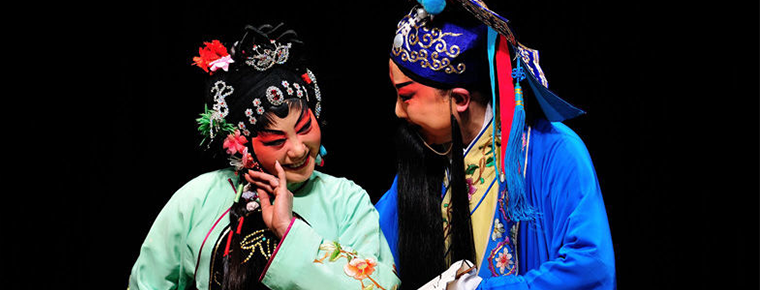
-
Online Shopping
Online shopping is to retrieve commodity information through the Internet, and send out shopping requests through electronic order forms, then fill in the number .
Views: 218 Time 2018-11-13 -
Bali River Scenic Area
Bali River Scenic Spot is a national AAAAA-level tourist attraction with "Global 500 Top" environmental protection. It is located in Yingshang County.
Views: 249 Time 2018-12-08 -
Liaoheyuan National Forest Park
Liaoheyuan National Forest Park is located in Dawopu Forest Farm, Pingquan County, Hebei Province. It is named for its birthplace of Liaohe River in China..
Views: 147 Time 2019-01-30 -
Taiyuan Qingxu Baoyuan Old Vinegar Workshop
Taiyuan Qingxu Baoyuan Old Vinegar Workshop is located in Taiyuan City, Shanxi Province. It is the "Taiyuan Youth Heritage and Education Base". It has been awarded the "First Industrial.
Views: 171 Time 2019-02-13 -
Shanghai Opera
Shanghai Opera, a local traditional drama in Shanghai, is one of the national intangible cultural heritage..
Views: 158 Time 2019-05-03 -
Huang Di memorial ceremony
Yellow Emperor's sacrificial ceremony is a kind of sacrificial music and dance to celebrate Xuanyuan Huangdi's pioneering achievements in Chinese civilization. The theme of.
Views: 123 Time 2019-05-04 -
Huian womens clothing
Hui'an women refer to a group of special folk women on the coast of Huidong Peninsula, Hui'an County, Quanzhou, Fujian Province. They are famous at home and abroad for their unique clothes and diligen.
Views: 198 Time 2019-05-04 -
Block door La shou men
Stopper Gate is one of the traditional Chinese boxing schools. It originated in Shaolin and was introduced to Tianjin in the early Qing Dynasty. It originated in Sichuan. It was the earliest southern .
Views: 214 Time 2019-05-10 -
Shandong drum
In addition to the book drum, the musical instruments of Shandong drum were initially beaten with two pieces of plough and plough, and then two pieces of iron and copper were used, accompanied by thre.
Views: 142 Time 2019-06-13 -
Wudu Alpine Opera
Wudu Alpine Opera, also known as Alpine Opera, is one of the two unique local operas in Gansu Province. In 2008, Wudu Alpine Opera was selected as the second batch of national intangible cultural heri.
Views: 168 Time 2019-06-30 -
Chengdu Medical College
Chengdu Medical College is a full-time general medical college organized by the Sichuan Provincial People's Government. It is located in Chengdu, the capital of Sichuan Province. Its history can be tr.
Views: 144 Time 2019-08-31 -
Yamugou scenic spot
Yamugou scenic spot is located on the Bank of Taiping River (a famous scenic spot in Guizhou Province) in Jiangkou County, Tongren City, Guizhou Province, adjacent to Fanjing Mountain (National Nature Reserve, China's top ten famous summer resort). .
Views: 154 Time 2020-10-13

